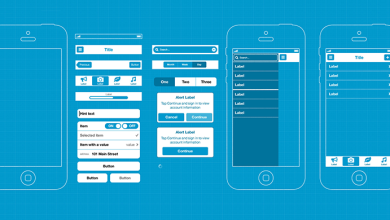Entrepreneur’s Guide To Unlock DevOps Strategy for Premium App Development!

Imagine a concept that bridges the gap between the development team and operation teams. Nobody waits for the other and time is efficiently utilized. DevOps does that for us.
Top mobile app development companies make use of DevOps to adopt the agile methodology where your requirements and their solutions are realized through close collaboration between functional teams.
This might sound Greek to you but customer-oriented IT Managed Service Provider incorporate this strategy to achieve continuous feedback from all the teams and increase developer productivity.
For successful implementation of DevOps strategy, one must ensure transparency amongst the functional units.
We sure can use increased productivity so why don’t we learn a bit more about this productive strategy?
CI/CD Pairing
Under this strategy, the development team is focused on continuously merging the code and quickly moving to the test. This way each piece of code is tested before deployment.
Continuous Deployment or Delivery comes after the integration wherein the development is successfully tested and moved to production.
In the delivery setting, the software artifacts (design documents, test matrices, prototypes) are launched and distributed to the end-users.
This method helps in involving the customers in the development process and working tirelessly to achieve their continuously changing requirements.
Microservice Architecture
Tailor-made for DevOps strategy, Microservice architecture helps in ensuring bits and parts of projects that contribute independent business logic are working fine.
This is especially important because such architecture helps in testing functions without letting them interfere with other services and thus streamlining the development process.
Another important benefit is polyglot programming meaning services don’t share the same dev tech.
Container Orchestration System
Well, building, packing, and deploying software is a herculean task and containers assist in achieving.
They isolate the code and its application from the OS and provide everything the software needs to run within it.
Hence, particularly useful for Microservice architecture that helps in automating most of the tasks and cuts the risk of complexity through manual work.
It also helps in achieving resilience because orchestration tools automatically restart and scale the container. With the minimal chance of human error, security issues become manageable.
DevOps strategy incorporates these automation strategies and achieves faster results with minimal effort.
If you are convinced that DevOps is the way forward for app development then we agree with you too!
Moreover, if you’re looking for a name to trust with your DevOps strategy, we have a little something for you. TechAhead, a mobile app development company is what you’d want to partner with.
With 12+ years of experience and Clutch Award for App Development, and working with many industry giants like Disney, DailyHunt, Audi they have gained trust and expertise in the field.
Additionally, TechAhead makes use of agile methodologies to create a feedback loop with you, which makes the process pretty efficient. Their expert developers and innovative operations team work closely to achieve the goal, which is ultimate customer satisfaction.
TechAhead’s services go beyond just development and if you’re curious enough about their excellent work model, head over to our portfolio and decide for yourself!
According to the IDC, the US IT & telecom sector accounted for 30% of the total market in 2019 as a result of the increasing use of DevOps tools in conjunction with Network Function Virtualization (NFV) technologies and container-based networks. DevOps software tools generated USD 8.5 billion in worldwide revenue by the end of 2019. While the market for DevOps software tools has shown positive single-digit growth in both 2020 and 2021, despite the pandemic-induced slowdown.
Clarity, predictability, and engagement remain at the forefront of your value stream using DevOps solutions. The technologies provided by DevOps consulting companies make it easier to share and communicate information and technical know-how among all stakeholders, including development, operations, security, and business units, in order to produce better products. Digital transformation companies assist businesses in utilizing the vast range of DevOps tools available to meet any need.
It’s a distributed source code management (SCM) system that’s popular among remote teams and accessible developers. Git helps you to keep track of your development progress. You may save many versions of your source code and go back to a prior one if required.
1. JIRA
Jira is a renowned project management and problem tracking application. It’s a product of Atlassian, a well-known IT firm that makes Confluence, Bitbucket, Trello, Statuspage, and other highly desirable software applications. Jira is available as a SaaS or even on a solution. Jira also has a powerful automation engine that lets you create automation rules with a simple drag-and-drop interface. You may link to technologies like Bitbucket, GitHub, and Microsoft Teams and incorporate them in your automation processes in addition to Jira tasks.
2. GRADLE
Gradle supports intermittent builds, which verify if the inputs and outputs have changed since the last run. This feature reduces compilation time by up to 100 times when compared to Maven, according to Gradle’s performance measurements. Gradle’s build cache and daemon help to accomplish this speed boost, which is partially due to incrementality and partly due to Gradle’s build cache and daemon. In between builds, the build cache reuses task outputs, while the Gradle Daemon maintains build information hot in ram.
3. KUBERNETES
Kubernetes is a docker containers software that revolutionizes container management. To help you organize your containers into two or more fragments, Kubernetes works well with Docker or any of its equivalents. One parent and multiple worker nodes make up a Kubernetes cluster. The master node executes your instructions and distributes the containers to the worker nodes. Kubernetes keeps track of everything to avoid problems; for example, if a worker node goes down, it will redistribute the containers.
4. JENKINS
DevOps automation technology is an open-source continuous integration and delivery (CI/CD) server that allows you to automate the various steps of your delivery pipeline. Jenkins’ prominence stems mostly from its extensive plugin environment. Thanks to over 1,800 extensions, it works with practically all DevOps technologies, including Docker, Puppet, Octopus Deploy, and more. The Jenkins development platform enables rapid testing and deployment of new code.
DevOps is a new method to mobile app development that allows for continuous application delivery from conception to production. DevOps consulting companies stress effective cooperation among all stakeholders engaged in the development of a digital product. It has become very straightforward to match corporate goals and offer more value to consumers thanks to DevOps. Currently, even IOS app development companies are taking leverage of the power of DevOps. In this article, let’s explore more about this technology and its relation with applications for Apple hardware.





